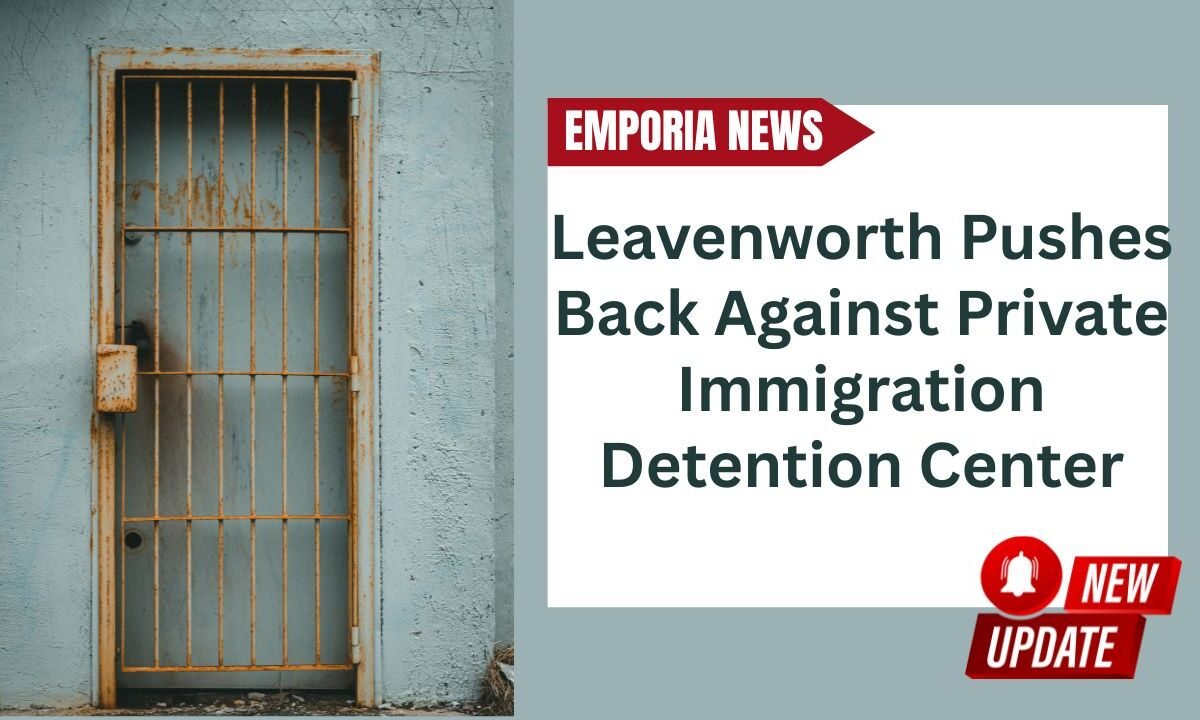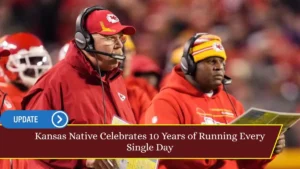In Leavenworth, Kansas, a town known for its prison history, residents are opposing efforts by CoreCivic, a private prison operator, to reopen a former detention facility and house immigrants under a contract with U.S. Immigration and Customs Enforcement (ICE).
The plan has ignited widespread concern among locals, including former prison staff, religious advocates, and city officials, who cite the facility’s troubled past and potential community impact.
A Town with a Deep Prison Legacy
Located 30 miles northwest of Kansas City, Leavenworth has long relied on prisons and military facilities for employment. Despite the town’s typically pro-incarceration stance—Donald Trump won over 60% of its 2024 vote—many locals are rejecting the reopening of what they call a “problematic” detention center.
CoreCivic’s application to reopen the Midwest Regional Reception Center prompted immediate backlash and legal action from the city.
Residents Organize Against Reopening
On a May evening, dozens gathered at the public library for a community “teach-in” to discuss ways to block CoreCivic’s permit. Organizer Rick Hammett said the company profits from fear-driven immigration policies:
“To stay profitable, private prisons must not only build facilities but keep them full.” Attendees strategized letter-writing campaigns and pressure on officials while sharing homemade cookies and iced tea.
Legal and Political Resistance
Earlier this year, CoreCivic submitted a permit request, citing its previous employment presence as justification for not needing one.
The city disagreed and filed lawsuits in both state and federal courts. In June 2025, a state judge sided with the city, issuing a temporary injunction halting CoreCivic’s plans.
Still, the company insists the facility doesn’t require a special permit.
CoreCivic’s Defense and Promises
CoreCivic claims the project would create over 300 jobs with starting pay at $28.25/hour and provide the city with over $1 million in annual taxes, along with a $1 million one-time impact fee and other recurring payments.
Senior public affairs director Ryan Gustin defended the company’s record, attributing past issues to COVID-era staffing shortages.
A Troubled History of Abuse and Mismanagement
Residents vividly recall the facility’s troubled past—violence, suicides, and inadequate healthcare—including the death of 29-year-old Dillon Reed in 2018, which went unreported to police for six days.
Former correctional officer Bill Rogers, who removed Reed’s body, emotionally recounted the event, saying, “I didn’t see an inmate. I saw my son.”
Firsthand Accounts of Neglect and Trauma
Tina Shonk-Little, formerly incarcerated at the facility, described dire medical neglect, saying, “If you had a toothache, they just pulled it.” Marcia Levering, a former officer, was nearly killed in a 2021 attack caused by security lapses. She now lives with permanent disabilities and says CoreCivic prioritizes profits over people.
A Broader Fight for Community Control
Organizers like Ashley Hernandez of the Sisters of Charity argue CoreCivic misrepresents locals as “outside agitators.” In truth, many residents—regardless of political beliefs—don’t trust CoreCivic to operate ethically. Even Trump supporters in town have joined the opposition.
Looking Ahead: Community Action Continues
The legal battle is ongoing, with CoreCivic requesting the court reconsider the injunction. Meanwhile, Leavenworth residents are planning a march on July 19, with preparations for protest signs scheduled at MoMos ten days prior.
As CoreCivic pushes to reopen its immigration detention center, Leavenworth residents are uniting across political lines to resist.
With past abuses still haunting the town and legal hurdles intensifying, the community is determined to defend its future against what many see as a return to a dark chapter of privatized incarceration.




